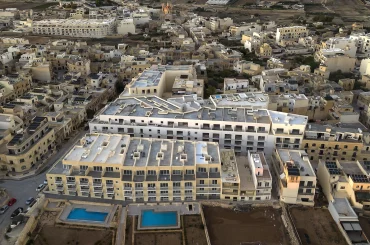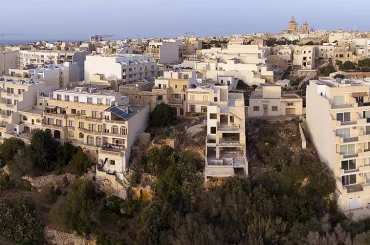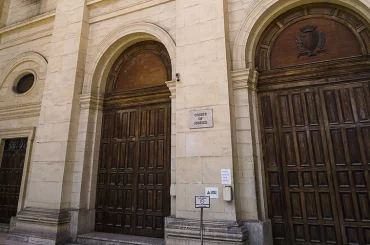The government has stalled on the implementation of recommendations made by three judges in the inquiry on the assassination of Daphne Caruana Galizia, and this serves to embolden the crooked and the corrupt.
The judges’ recommendations are designed to protect investigative journalists holistically and, more importantly, make the fight against corruption and criminality more effective.
But the matter has fallen victim to partisanship in some quarters, and mischaracterised as giving too much power to journalists. Such criticism is misplaced because this is not so much about journalists or journalism as going after crooks more smartly. By crooks I do not only mean corrupt politicians – those are crooks too – I also mean thieves, murderers, burglars, money launderers, rapists, and so on.

Do we want to adopt the smartest legal tools and make the fight against such criminals more effective?
Then take for example one of the recommendations, Unexplained Wealth Order, a legal instrument increasingly adopted by countries to take the battle to organized crime and corrupt officials – more on this below.
Yet the government has crafted limited measures and made them about journalists only, and then tasked a committee with putting gloss on such minimal legal tinkering that could have been done by a retired judge in a day’s work. This makes the committee all aplomb (including its title, the Committee of Experts) and little substance, raising the suspicion that the government seeks to conjure the appearance of doing something while in fact doing precious little.
Here is an explainer of some of the crucial recommendations.
Unexplained wealth order
Under this law, failure to account for any wealth, be it funds or material possessions, would constitute guilt. An increasing number of countries have been adopting this law as an extension of – and escalation to – the fight against money laundering.
Money laundering is the defining crime of our age. It refers to the handling or use of proceeds of crime – since money is the object of most crimes, money-laundering is a component of most crimes.
Under existing legislation – the Prevention of Money Laundering Act – the police usually charge people with money laundering as well as the predicate (or underlying) offence.
A finding of guilt of the underlying offence is not needed for a conviction on money laundering. The law says that the prosecution does not have to present incontrovertible evidence of the underlying crime – that this can be “established on the basis of circumstantial or other evidence” and “without being necessary to establish precisely which underlying activity.”
But the law as it is still compels the police to gather evidence of the underlying crime – or predicate offence – and the likelihood remains of the prosecution failing to prevail in court if it does not demonstrate at least circumstantial evidence of an underlying crime.
This is where the Unexplained Wealth Order comes in as a foolproof instrument against complex financial crime and organized crime. The police would simply have to show that there is no legitimate explanation that accounts for an accumulation of wealth, be it money or material possessions.
And this instrument – Unexplained Wealth Order – takes the fight to criminals because the potential of being nabbed on the basis of unexplained wealth makes their enterprise a lot more complicated to keep hidden.
It also makes police’s work easier and more effective.
Make obstruction of justice a crime
In Maltese law, it’s not illegal for someone to refrain from revealing to investigating police any information on any crime that he or she would have knowledge of. In other words, if you get to know of a murder having been committed, you are under no legal obligation to reveal anything to the police if you are questioned by them. Moreover, if someone asks you to hold on to a document that would prove crimes such as money laundering so that the police would not find it in his possession, that is not a crime either.
Yet these actions are a passive abetment of crime – or obstruction of justice.
The board of inquiry suggested that obstruction of justice by civil servants be made a crime. I would go a step further and make it a crime affecting everyone (except those ordinarily bound by professional secrecy). Of course we cannot turn into one of those police States in which everyone is under obligation to spy on everyone else. For this reason, this should be limited to obstruction of justice in the event of being sought out during active police investigations. This would create a legal obligation to cooperate with the police in the event that you are contacted or summoned by the police to give any information you would have knowledge of in the course of the investigation.
Making civil servants’ abuse of power a crime
Sometimes civil servants, or government permitting bodies, take decisions that are so arbitrary or without reasonable basis that it is impossible to shake off the suspicion of corruption. Yet the police may find no evidence of corruption, and the government official or officials get away with it.
Hence the recommendation: to make abuse of power a criminal offence. This would make arbitrary or preferential decisions, or decisions without reasonable basis, an abuse of power that would be actionable under such a law.
This would not only make it much harder for corrupt officials to get away with corruption, it would also vastly improve the quality of governance as officials would become more diligent in decision-making.
Police acting on revelations by journalists
The board of inquiry said that the police have to investigate revelations and allegations by journalists in a quick, effective manner. Although the police have taken to investigating credible media revelations (not sure if this is always the case, but I can say that the tendency now of departments such as the financial crime unit is to investigate), problems still remain.
Many investigations are not expeditious enough, mostly because police are overwhelmed with work. Moreover, when it comes to complex cases of financial crime, the polices’ expertise remains patchy and so does that of the Attorney General’s office, which procedurally looks over the polices’ file before charges are made. The Attorney General is staffed with young lawyers who are still finding their feet, and who struggle with complex financial crime cases.
Meanwhile, there are plenty of government entities or individual officials who ignore media revelations pertaining to their area of operations. It is also their obligation to look into revelations and pass any information or knowledge to the police. Many prefer to remain passive. Among the worst offenders is the Planning Authority, which sees or hears no evil unless someone makes a report to it.
Yet another recommendation of the board of inquiry is to increase the powers of the Attorney General so that that office can initiate investigations itself.
All these recommendations are crucial to put a lid on pervasive crime and corruption. But the government has stalled on implementation.







